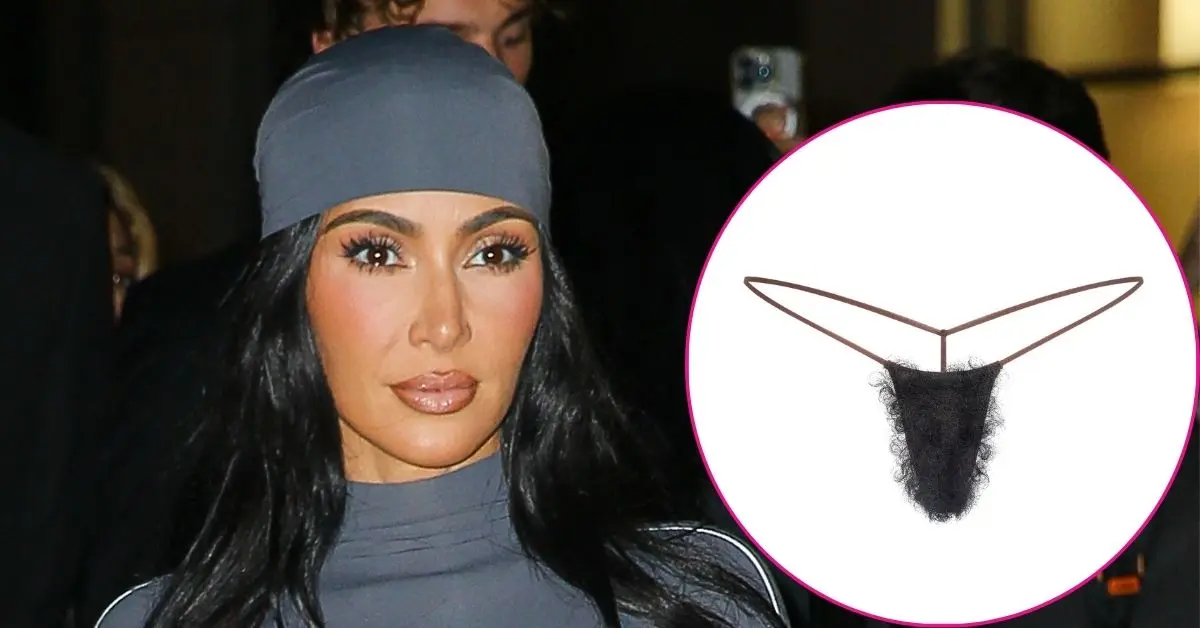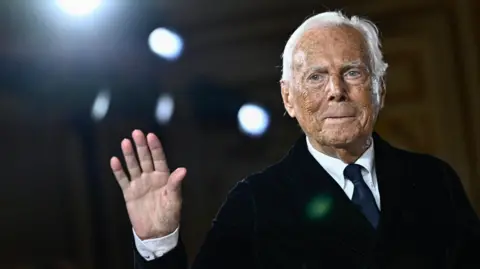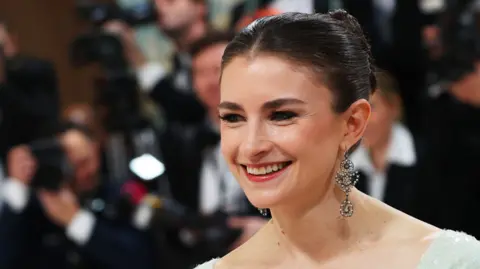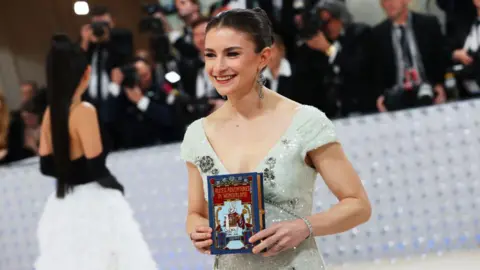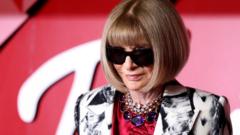In recent months, a surprising resurgence of provocative fashion has swept through red carpets and fashion weeks, as celebrities boldly embrace sheer outfits that celebrate body autonomy. At the Brit Awards, the standout winner, Charli XCX, donned a revealing sheer black dress, igniting controversy and provoking 825 complaints to media watchdog Ofcom regarding her outfit. During her acceptance speech, she cheekily remarked, "I feel like we're in the era of 'free the nipple' though, right?" This phrase encapsulates the ongoing dialogue surrounding nudity in fashion—a topic that has gained momentum at events like the Oscars and Grammys, where transparency has become a staple.
Paris Jackson made waves at the Paris Fashion Week, showcasing a translucent off-the-shoulder gown that left little to the imagination. The trend of ‘naked dressing’ is further evident with designers like Dior embracing transparent elements in their collections, emphasizing fluid silhouettes alongside intricate detailing—something creative director Maria Grazia Chiuri highlights as a means to convey cultural and social codes through clothing.
While the trend may evoke nostalgia for the minimalist fashion of the '90s—with its sheer blouses and iconic slip dresses—the present surge feels more about reclaiming autonomy. Stylists such as Julia Pukhalskaia describe this choice as a "provocative statement," one that asserts the right for women to govern their bodies. Similarly, Abhi Madan of Amarra states the appeal lies in “embracing freedom and boldness in fashion,” emphasizing that the movement transcends mere exposure and champions body positivity.
Hollywood has seen men joining this quasi-naked trend; from Timothée Chalamet’s backless top to Harry Styles’ daring jumpsuit at the Grammys, the line between tradition and modernity is becoming increasingly blurred. Despite some critiques, highlighting double standards in modesty that seem to favor men, women's fashion remains at the forefront of this movement, provoking widespread reactions and dividing perspectives on whether these sartorial choices symbolize liberation or an exploitation of femininity.
While many applaud stars for stepping outside societal norms, the debate persists as to whether this trend redefines conventional modesty or perpetuates existing inequalities in the portrayal of women's bodies versus men's. As ‘naked dressing’ transforms runway presentations and award ceremonies alike, it undoubtedly fuels essential discussions on autonomy, empowerment, and the nature of fashion in contemporary culture.
Paris Jackson made waves at the Paris Fashion Week, showcasing a translucent off-the-shoulder gown that left little to the imagination. The trend of ‘naked dressing’ is further evident with designers like Dior embracing transparent elements in their collections, emphasizing fluid silhouettes alongside intricate detailing—something creative director Maria Grazia Chiuri highlights as a means to convey cultural and social codes through clothing.
While the trend may evoke nostalgia for the minimalist fashion of the '90s—with its sheer blouses and iconic slip dresses—the present surge feels more about reclaiming autonomy. Stylists such as Julia Pukhalskaia describe this choice as a "provocative statement," one that asserts the right for women to govern their bodies. Similarly, Abhi Madan of Amarra states the appeal lies in “embracing freedom and boldness in fashion,” emphasizing that the movement transcends mere exposure and champions body positivity.
Hollywood has seen men joining this quasi-naked trend; from Timothée Chalamet’s backless top to Harry Styles’ daring jumpsuit at the Grammys, the line between tradition and modernity is becoming increasingly blurred. Despite some critiques, highlighting double standards in modesty that seem to favor men, women's fashion remains at the forefront of this movement, provoking widespread reactions and dividing perspectives on whether these sartorial choices symbolize liberation or an exploitation of femininity.
While many applaud stars for stepping outside societal norms, the debate persists as to whether this trend redefines conventional modesty or perpetuates existing inequalities in the portrayal of women's bodies versus men's. As ‘naked dressing’ transforms runway presentations and award ceremonies alike, it undoubtedly fuels essential discussions on autonomy, empowerment, and the nature of fashion in contemporary culture.










